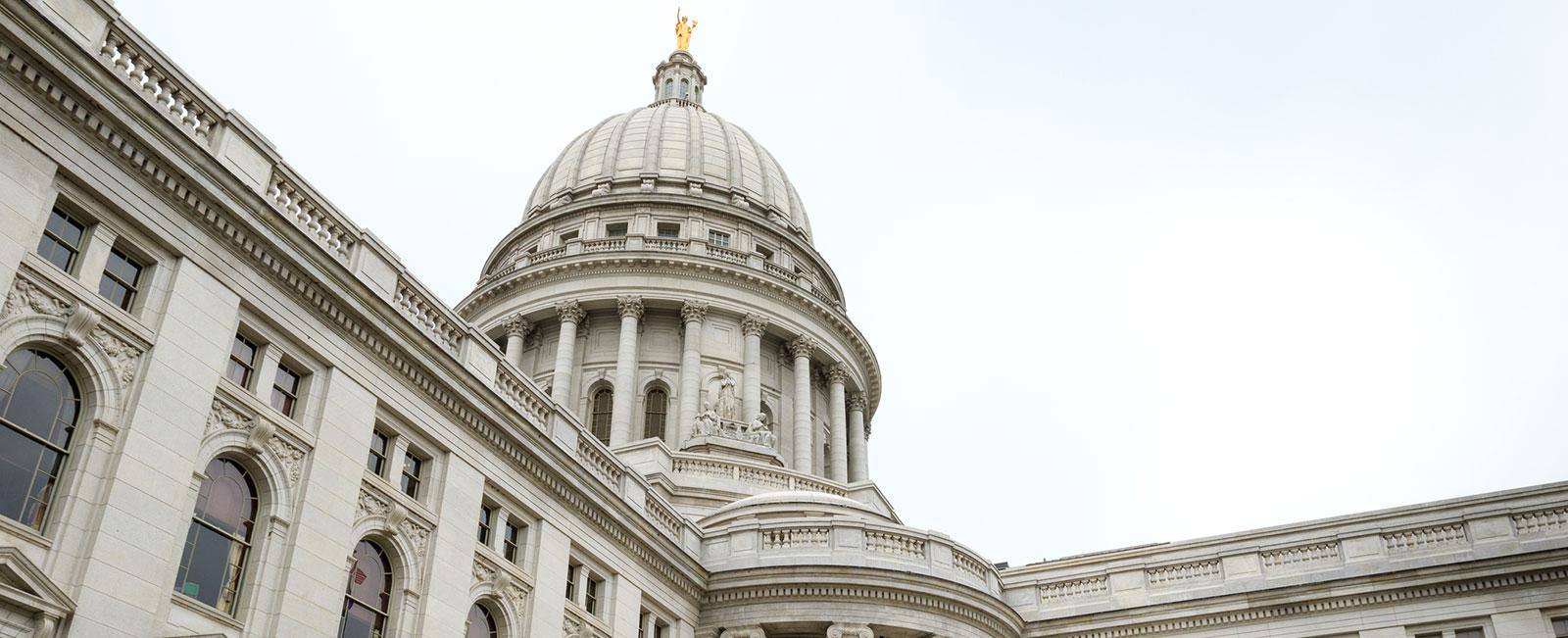U.S. and Canada
Wisconsin Assembly approves universal credentialing bill
Wisconsin, lawmakers passed three bills, with one establishing a parental bill of rights, another preventing credit card companies from identifying merchants as firearms retailers, and a third allowing professionals licensed in other states to practice in Wisconsin without waiting for the state’s licensing process.
The latter, AB 332, expands reciprocal credentialing in Wisconsin for most professions, eliminating residency requirements. In a party-line vote of 62-35, the bill supports universal credentialing, enabling individuals with licenses from other states to receive reciprocal credentials in Wisconsin. An amendment added exemptions for lawyers, certified public accountants, and electricians, requiring applicants to have held the credential in another jurisdiction for at least three of the past five years.
Rep. Supreme Moore Omokunde expressed concerns that universal licensure might lower Wisconsin’s occupational standards, emphasizing the need to scrutinize out-of-state applicants. The bill responds to issues with the Department of Safety and Professional Services (DSPS), which, despite facing delays in processing professional licenses, is starting to overcome them.
While DSPS performance has improved recently, Moore Omokunde argued against universal licensure, advocating for increased department funding and staff. Republican Rep. Shae Sortwell countered, asserting that the bill promotes efficiency, trusting other states’ due diligence and facilitating quicker access to work for professionals. Get the full story at the Wisconsin Examiner.
Dental therapists will help provider shortage: Health care advocates
Also in Wisconsin, lawmakers passed legislation allowing the licensure of dental therapists, a move aimed at addressing the shortage of dental care professionals in over half of the state’s counties. The legislation, proposed by State Sen. Mary Felzkowski, allows dental therapists, akin to physician assistants, to provide mid-level care under dentist supervision, performing procedures like filling cavities or placing temporary crowns.
Advocates, including the Wisconsin Primary Health Care Association, believe this will enable dentists to focus on more complex services. Thirteen states, including Michigan and Minnesota, already license dental therapists, and the bill awaits approval from Democratic Gov. Tony Evers.
To support workforce training, lawmakers approved $20 million in grant funding for the state’s technical colleges to expand oral health care programs. While dental therapists are seen as a positive addition to the workforce, Matt Crespin, executive director of Children’s Health Alliance of Wisconsin, emphasizes that they are not a “silver bullet” for addressing access to care issues. Crespin suggests a multi-pronged approach, noting the importance of the legislature’s focus on oral health care, including investments in training programs and changes to scholarship programs for healthcare professionals in underserved areas.
Additionally, Wisconsin will enter an interstate Dentist and Dental Hygienist Compact, allowing practitioners from other states to be eligible to practice in Wisconsin. Read more at Wisconsin Public Radio.
Ban polygraph tests for those claiming sexual abuse: Utah lawmaker
Utah Representative Angela Romero, D-Salt Lake City, has proposed legislation to ban government officials from requiring alleged sexual assault victims to undergo polygraph tests. The move comes in response to an investigation by The Salt Lake Tribune and ProPublica revealing the detrimental impact of a polygraph test on a Utahn who reported inappropriate conduct by his therapist. Polygraph tests are considered unreliable for sexual abuse victims, leading several states to already ban their use in such cases.
Rep. Romero aims to eliminate a potential barrier preventing sexual assault survivors from reporting incidents. She expressed concern that victims might feel disbelieved due to the misconception that polygraph tests are akin to lie detectors. Recognizing the unsuitability of these tests for trauma victims, Romero emphasized the need for more effective methods in interviewing sexual assault victims.
While the frequency of polygraph use on sexual assault victims in Utah is unclear, Romero’s initiative aims to align the state with others that have implemented similar bans. She stressed the importance of fostering an environment where victims feel supported and believed, addressing concerns about the inadequacy of prosecuting sexual assault cases effectively in Utah and many other states. The bill is yet to undergo its first committee hearing in the Utah legislature. Learn more at The Salt Lake Tribune.
Occupational licensure easing takes first steps in Nebraska
Nebraska Senators took a step towards easing occupational licensure regulations by advancing LB16, a bill aimed at reducing barriers to entry for certain professions. Originally introduced by former Albion Sen. Tom Briese and taken up this session by Sen. Danielle Conrad of Lincoln, LB16 underwent a Government, Military, and Veterans Affairs Committee amendment, which was adopted 38-1.
The amended bill proposes significant changes to state law regarding credentials for specific professions. Notably, it introduces broad reciprocal licensure for military members, apprentices, and individuals licensed in other states, provided they meet specified criteria. Additionally, two members would be added to the State Electrical Board.
Sen. Conrad emphasized that reducing barriers to entry is crucial for addressing the state’s workforce shortage. She cited examples of approximately 20 other states that have implemented similar policies, resulting in increased workforce participation and overall economic benefits. Conrad framed the initiative as a means to eliminate unnecessary bureaucracy and foster healthy competition, allowing individuals to pursue work opportunities freely.
Among the bill’s provisions, applicants for reciprocal licensure must have held their credential for at least a year, possess a credential with a similar scope of practice, have no disqualifying criminal record, and not be under investigation for unprofessional conduct or alleged crime in any jurisdiction. After the adoption of a Conrad amendment, LB16 was advanced to the second round of debate with a 41-1 vote. Read more at Unicameral Update.
Newcomers using social media more likely to find skilled work in Canada: Study
A 2023 study by Toronto Metropolitan University (TMU) reveals that 65% of “pre-arrival newcomers” used social media for job prospects before coming to Canada, providing them with a 3-to-1 advantage in establishing themselves in the labor market within the first six months of arrival. The study analyzes the impact of social media use at different stages of the newcomer journey, highlighting how platforms such as Email/Telephone, Facebook, and LinkedIn were popular for pre-arrival search and communication. LinkedIn emerged as a preferred source for job search advice, job interview advice, and salary information.
The post-arrival outcomes indicated a positive correlation between pre-arrival social media use and employment success in Canada. Around 75% of respondents who found work related to their skills used social media before arrival, emphasizing its significance for newcomers seeking employment applicable to their experience. Moreover, nearly 80% of immigrants securing high-paying jobs were pre-arrival social media users, while 75% of those in precarious, low-paying employment did not utilize social media beforehand.
Despite the widespread use of social media, some respondents expressed challenges, including a lack of confidence in shared information, exposure to misinformation or fake news, and concerns about fraud, identity theft, or privacy threats. The study suggests that while social media is a valuable tool for job search and information, newcomers face varying experiences and may need additional support in navigating these platforms effectively. Read about it at CIC News.
U.K. and E.U.
Industry-led working group for financial advisers established by FCA
The Financial Conduct Authority (FCA) has established a new working group focused on enhancing capability in sustainable finance across the financial advice sector. Daniel Godfrey will serve as the chair, and Julia Dreblow as the vice-chair of the group, with the Personal Investment Management & Financial Advice Association (PIMFA) providing the secretariat. The FCA will sit as an active observer and expects the group to report on supporting the advice sector in delivering good practice in sustainable finance by the second half of 2024.
The working group aims to support the industry in advising consumers on sustainability-related product claims. It will engage with stakeholders from various segments of the advice sector, ensuring representation from both small and larger industry participants. The initiative is part of the FCA’s broader measures to enhance trust and transparency in sustainable investment products, including the implementation of Sustainability Disclosure Requirements and an industry-wide anti-greenwashing rule. Read more at FCA’s site.
Ireland moving steadily on digital initiatives with 2.3M verified MyGovID accounts
Ireland is progressing well on its digital transformation initiatives, with 2.3 million verified MyGovID accounts, according to the 2023 progress report on the Digital Ireland Framework. The government aims to be a leader in digitizing the economy and society, with the creation of an AI Advisory Council, chaired by AI Ambassador Dr. Patricia Scanlon. The council advises on AI-related policies, aligning with the framework’s support for enterprise.
The report outlines initiatives such as the Digital Portal to aid businesses in digitization and the €85 million Digital Transition Fund. In Dimension 4, focusing on digitalizing public services, the goal is to have 80% of eligible citizens using MyGovID by 2030, with 2.3 million already registered as of October 2023. The government is also developing a “life events portal” for key identity documents, starting with driver’s licenses and birth certificates. Ireland is committed to EU-compatible digital wallets, a digital healthcare roadmap, and robust digital regulation, aligning with GDPR and the AI Act. Learn more at BiometricUpdate.com.
Australia
Australia reviews AI use regulations
The Australian government has released an interim response addressing the safe and responsible use of artificial intelligence (AI) in the country. The response focuses on mitigating potential risks associated with AI, particularly in high-risk scenarios where harm may be challenging to rectify.
The government is considering the implementation of mandatory guardrails for AI development and deployment in high-risk settings, possibly through amendments to existing laws or new AI-specific legislation. Immediate actions include developing a voluntary AI Safety Standard, exploring options for voluntary labeling and watermarking of AI-generated materials, and establishing an expert advisory group for developing options for mandatory guardrails.
The proposed guardrails aim to promote safe design, development, and deployment of AI systems, covering aspects like testing, transparency, and accountability. The government is closely monitoring international efforts, including those in the EU, US, and Canada, and participating in global discussions on AI safety. Learn more at Insurance Business.
More news:
- In a recent case, Ontario’s Division Court reiterated that the onus is on the applicant for professional licensure to prove they will operate lawfully and with honesty and integrity when appealing a decision to deny licensure. The court clarified that regulators have “robust gatekeeping powers” to deny licenses to professionals whose past and present conduct raises concerns about their integrity and honesty. The case involved Yarco Developments, whose owner had been convicted of 22 counterfeiting and credit card fraud offenses. The License Appeal Tribunal had originally found that Yarco should be granted a license, but the Division Court overturned that decision, emphasizing the importance of public and consumer protection in professional licensing decisions. Read the story at Law Times.
- The Wisconsin Department of Safety and Professional Services (DSPS) set a record by issuing 60,696 initial licenses to professionals in 2023, a 38% increase from 2022. DSPS Secretary-designee Dan Hereth attributed the success to the agency’s focus on improving licensing times and getting qualified professionals into the workforce promptly without compromising safety. The average time for DSPS to review application materials is now 3.6 calendar days. Governor Tony Evers directed emergency federal funding to DSPS, enabling investments in technology, staffing, and the creation of an online, self-guided system for license applications and renewals. Read more here.
Also noteworthy:
Interesting opinion, commentary, and analysis from the web:
Learn how a troubled for-profit nursing program dodged early closure in this deep-dive on issues with for-profit nursing programs, focusing on Aspen University in Phoenix, Arizona, which faced criticism for failing to meet educational promises. (Medpage Today)
As State lawmakers continue to push for removal of impediments to work, the trend of universal licensure recognition continues in various states, including Florida’s potential adoption in 2024. (Forbes)
Does US banking regulation need to change to enter the digital age? (Financial Times)
Disclaimer: The thoughts, opinions, and commentary of the articles we share links to in Week in Brief do not necessarily reflect those of Ascend Magazine or Thentia.
IN BRIEF

Digital leaders gather in Dublin: Weekly regulatory news
The Week in Brief is your weekly snapshot of regulatory news and what's happening in the world of professional licensing, government technology, and public policy.
This week in regulatory news: Digital leaders and regulators to gather in Dublin, how SEC regs will change cryptocurrency markets, existing
and proposed federal AI regulation in the U.S., and more.

U.S. and UK sign agreement to test the safety of AI models: Weekly regulatory news
The Week in Brief is your weekly snapshot of regulatory news and what's happening in the world of professional licensing, government technology, and public policy.
This week in regulatory news: U.S. and UK sign agreement to test the safety of AI models, Coinbase secures Canadian registration even as U.S. regulatory troubles persist, lawyer who raised ‘boys’ club’ concerns over judgment accused of misconduct, and more.

Muted modernization for the regulation of BC legal practitioners: Weekly regulatory news
The Week in Brief is your weekly snapshot of regulatory news and what's happening in the world of professional licensing, government technology, and public policy.
This week in regulatory news: Muted modernization for the regulation of BC legal practitioners, federal agencies issue new warning about DDoS attacks, how Europe’s regulatory battle with Apple could signal what’s to come for American customers, and more.

European government announces plan for independent football regulator: Weekly regulatory news
The Week in Brief is your weekly snapshot of regulatory news and what's happening in the world of professional licensing, government technology, and public policy.
This week in regulatory news: UK’s plans for an independent Football Regulator, calls in Canada for regulation to protect young people from tobacco products, and Premier Doug Ford’s demands for the removal of regulatory barriers and the elimination of the carbon tax.

Scholar proposes a new US regulatory system that would be more accountable to the public: Weekly regulatory news
The Week in Brief is your weekly snapshot of regulatory news and what's happening in the world of professional licensing, government technology, and public policy.
This week in regulatory news: Scholar proposes a new US regulatory system that would be more accountable to the public, Hong Kong’s Central Bank starts regulatory sandbox for stablecoin issuers, EU parliament greenlights landmark artificial intelligence regulations, and more.

Alberta counsellors to become regulated under psychologists’ college in proposed changes – Weekly regulatory news
The Week in Brief is your weekly snapshot of regulatory news and what's happening in the world of professional licensing, government technology, and public policy.
This week in regulatory news: Alberta counsellors to become regulated under psychologists’ college in proposed changes, ICO takes regulatory action against five public authorities under the FOI Act, US executive order will address brokers’ sensitive data transfers to ‘countries of concern’, and more.








